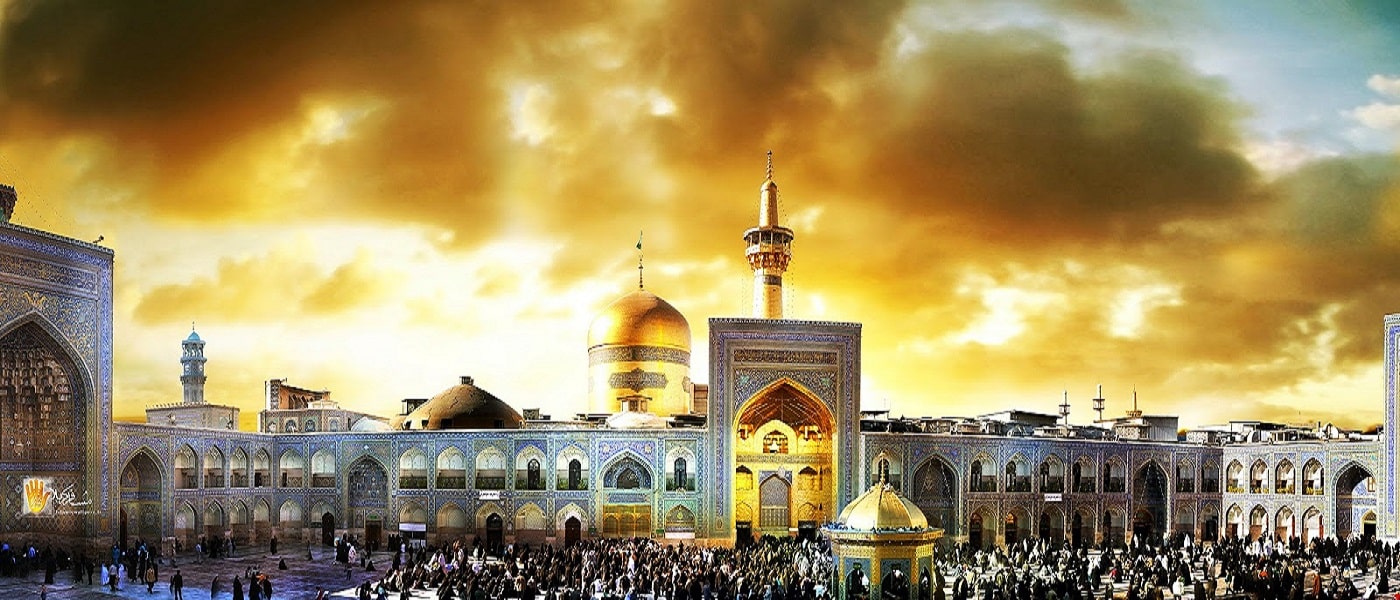

Is Singing in Islam allowed?
In answering questions about singing in Islam, we cannot say that singing is completely forbidden (Haram) in Islam. Like any other issue, we have to find out what kind of singing is allowed (Halal) and that if there is a prohibition, what is that makes it forbidden (Haram)?
What Makes Singing in Islam Forbidden (Haram)?
In deriving the ruling of singing from the Quran, jurists usually refer to two main verses:
“Among the people is he who buys diversionary talk that he may lead [people] astray from Allah’s way without any knowledge, and he takes it in derision. For such, there is a humiliating punishment” (31:6).
Some interpreters have taken the phrase “diversionary talk” (Lahw al-hadith) as any sort of speech that deviates people’s minds from the righteous way and attracts the concentration of people to an unjust saying. Jurists have expanded the unjust saying to any sort of expression of mind which may contain poetry or singing or music [2].
Also, it is said in another verse: “So avoid the abomination of idols, and avoid false speech …” (22:30).
In the interpretation of “false speech” (Qowl al-zur) in this verse, it is said that a false statement is any word that deviates people from the righteous way and remembrance of God [3].
When jurists want to define the forbidden (Haram) singing in Islam, they use the term “ghina”. In Islamic jurisprudence, singing is not forbidden (Haram) unless it is known to be ghina.
What is Ghina?
Ghina is the voice of a human, which is produced in a rise and fall pattern to create the effect of rapture that is suitable for frivolous and carouse gatherings. It is forbidden (Haram) to engage in this type of singing; as well as listening to it, even if it does not lead to rapture in the listener [4].
Any kind of singing that deviates a person from a moderate mood (may it be happy or sad) is referred to as ghina. The most visible sign of this deviation from a moderate mood is when the person loses his self-control; like the feeling that occurs to man after drinking wine. Islam has always prevented Muslims from being stuck in such moods.
Gatherings of merrymaking and sin are those kinds of gatherings that are formed for singing, dancing, debauchery, and sensuality.
Also, there might be some songs that do not deviate one from his/her moderate mood but are common for gatherings of merrymaking and sin. Those are also known as ghina.
Have you ever seen in some concerts, how the audience lose their mind and apart from dancing or crying with the song, they shout or faint out of rapture? This kind of singing is ghina, and those sorts of gatherings are referred to as gatherings of merrymaking and sin. Any kind of singing that changes the normal and rational mood of a person is ghina [5].
Some Hints to Recognize Ghina
Ghina is the type of song that is branded for amusement gatherings and parties.
Ghina is related to the type of song; meaning that if the lyrics of a song convey positive messages to the listener but the music of the song is jaunty, it makes that music forbidden (Haram) [6].
Ghina is when the lyrics of a song are about describing the beauties of a woman (whether physical or erotic description), or it has been written about wine, or dance or other prohibited (Haram) things in Islam [7].
Ghina is any song that changes the mood of the listener; makes him/her either happy or sad; any music or song that makes a gap between the present moods of the listener with his/her “real self” and weakens the control of the person over her speech or behavior.
Ghina is the sort of song that has such hopeless content, which destroys the positive motivations of the listener.
Ghina is any kind of song that by content, lyrics, or the specific sound of the musical instrument can arouse sexual temptation.
What Sort of Singing Is Lawful (Halal) in Islam?
Having mentioned the criteria of forbidden (Haram) singing, we can say that those songs which do not contain the conditions mentioned above are lawful (Halah).
Overall, if the listener maintains that as per common view they are not enraptured, there is no problem in listening to the songs (with or without music). Thus, neither the intention of the singer nor the content have anything to do with this ruling [8].
Listening to Women or Children Singing in Islam
In the matter of listening to a woman reciting poetry and other material with rising and falling her voice to the accompaniment of music, if the vocalization does not amount to ghina, listening to it is not driven by lust, and does not lead to a bad consequence, there is no problem in listening to it for women. If a woman’s signing is sexually exciting or listening to it leads to vile consequences, it is not allowed to listen to it at all. [9]
Regarding women’s singing to be heard by men, if it is not ghina and is not intended for questionable purposes or does not lead to vile consequences, as long as it is not sexually erotic, it is not forbidden (Haram). But as it often happens that listening to the beautiful voice of women is joyful for men, it is better if women do not sing for men and for men not to listen to women singing.
References:
- Ma’aref and Ma’arief, vol. 8, p. 283
- singing in Islam
- Rouhollah Khaleghi, An overview of music, p.4
- muslim singing
- Sayyid Mujtaba Husseini, Questions and Answers by Students (Rules regarding Music), pg. 40-42
- Art from the point of view of the supreme leader, p. 32-4
- Tafsir –e Qartabi, vol. 7, p. 5136
- singer
- Are Muslim allowed to sing?
Share This Article

Six Moral Traits of the Eighth Infallible Imam, Imam Rida (AS)
Imam Rida (AS) is the eighth infallible Shiite Imam and successor of the final holy Prophet (PBUH&HP). His name is Ali, and among all his other names and titles the most famous honorary one is “Rida,” which means ‘satisfaction’. But why was he called this name?
According to his son, Imam Jawad (AS), “The Almighty Allah named him Rida because He was pleased with him in the heavens and the Prophet of Allah (PBUH&HP) and the Imams of guidance (AS) were pleased with him on earth” [1]. In fact, Imam Rida (AS)’s moral qualities and virtues were so high that even his enemies were attracted to and admired him. You might wonder what these traits are!
1. Imam Rida's (AS) Forbearance
Imam Rida (AS) was the exemplar of a patient man. There were times when he was treated disrespectfully, but he would not react and preferred to remain silent. It has been narrated that when Caliph Mamun[i] tried to degrade Imam Rida’s (AS) position through scientific and theological debates with the contemporary scholars of other religions and opponents, Imam would patiently make the best use of those meetings and introduced the true religion of Islam to the world.
2. Imam Rida's (AS) Modesty
While having a meal alone, Imam Rida (AS) would invite all his slaves, servants, including the Blacks, to have the meal with him at the same place. And when he was told to make separate eating arrangements for the servants, he would refuse and say: “We are all created by God, our parents (Adam and Eve) are the same, everyone will be dealt with by God according to their deeds” [2].
Once a man said to Imam Rida (AS): “By God, you are the best in the world,” but Imam replied: “Do not swear by the name of Allah. Anyone who is more pious than me can be better than me.” Then he recited the following verse of the Quran:
“O, humankind! Verily, We created you all From a male and female [Adam and Eve] and appointed for your tribes and Nations to be known to each other [by Specified characteristics] Verily, in Allah's Sight the most honorable of you Is the most pious of you; and Allah is The Informed Owner of Knowledge” (49:13) [3].
3. Imam Rida's (AS) Courtesy
Imam Rida (AS) would never hurt anybody with his words; He treated people as respectfully and kindly as possible; he would never talk badly to anyone or interrupt someone when speaking; he never stretched his legs or lean upon something in front of people. He always smiled instead of laughing loudly [4].
One night while Imam Rida (AS) was talking to his guest, there was a problem with the light. The guest wanted to fix it, but Imam did not let him do so. He started fixing it himself and said: “We are the ones who do not put our guests to work.”
Also, it frequently happened that Imam called a servant for some work, and he was told that the servant was busy having a meal; then Imam would say: “Let him finish his food” [5].
4. Imam Rida's (AS) Generosity
One day a foreign traveler came to visit Imam Rida (AS). After saying hello and expressing his love and affection towards Imam Rida (AS), his fathers and ancestors, he said he had come back from Hajj and had run out of money. He asked Imam to give him some money to go back home and promised to spend the same amount there on charity and giving alms (Sadaqah).
Imam stood up and went to another room. Then he came, stretched his hand from behind the door, and said: “Get this 200 Dinar and spend it for your journey, there is no need to pay the same back as alms.” The man got the Dinars and left. Imam later was asked for the reason for his secret help, and he answered: “Because I did not want the man to feel ashamed” [6].
Also, whenever Imam Rida (AS) wanted to have his meal, he would bring a large plate and put the best of the food on it to be given away to the poor. If he afforded to help, he would always give alms to the destitute at nights.
5. Imam Rida's (AS) Insight
In another account, One of Imam’s companions narrated that One day after he arrived home, he saw his servants busy repairing the house. Imam noticed a stranger among them and asked about him. They answered he was there to help them and they would pay him. Imam asked if they had defined the amount of payment.
The answer was no. Imam became disturbed and said: “when one works without any contraction, he thinks that you have paid him little, even if you give him three times more. But if you contract and pay him according to the contraction, he will be pleased with receiving his right. Now if you pay more even just a little, he will understand you have paid more and will be thankful” [7].
6. Imam Rida's (AS) Divine knowledge
Imam Rida (AS) had inherited the divine knowledge from his ancestor, our Holy Prophet, Muhammad (PBUH&HP).
He was the wisest man of his time and all his contemporaries. His knowledge was so rich in all religious matters and other realms of knowledge that the people of various tribes in their language would turn to him when they had questions, and he provided them with the best answers. Ma'mun, the ruling caliph, summoned the knowledgeable scholars in an attempt to defeat Imam Rida (AS) in several scientific debates and to discredit him in public. Nonetheless, Imam succeeded in all of them, and no one was capable of overcoming his power of knowledge.
Whoever dared to challenge Imam Rida (AS) ended up yielding to his unique power of reasoning. It has been confirmed by historians that Ma'mun, who was himself a celebrated erudite, pointed out the following statement, in his official charter for the appointment of Imam Rida (AS) as his immediate successor:
"I do not know any person superior to this man [Imam Rida (AS)] in the whole world" [8].
The life of Imam Rida (AS) and our other infallible Imams (AS) contains countless anecdotes of this sort, which reveals how they teach us the correct way of life both by their sayings and behaviors.
In a famous tradition or saying (Hadith) called the Golden Chain (Selselah al-Zahab), Imam Rida (AS) said that he had heard from dignified ancestors quoting from Gabriel and Almighty Allah that: “The word of La Ilaha Illallah -there is no god but Allah- is My stronghold (then whoever acknowledges this has entered My stronghold) and will be saved from My punishment”. After reciting this saying for his companions, Imam paused for a while and then continued, “Few conditions are entitling this entrance, and I am one of its conditions.”
Through this account, Imam Rida (AS) confirms that the belief in monotheism (Tawhid) will be counted as perfect when it is based on the obedience of the infallible Holy Imams (AS). In fact, Imams’ lifestyle and traditions were so good that if we idolize them and follow in their footsteps, we will certainly be able to move through the stages of spiritual perfection and win Allah’s satisfaction. Insha’Allah!
Notes:
[i] The Abbasid caliph in power at Imam Reza’s (AS) time.
References:
- Bihar al-Anwar, V.49, P.4.
- Osool al-Kafi vol.8 p.230.
- Oyoun Akhbar al-Reza, v.2, p.236.
- Al-Fadl ibn al-Hasan Tabarsi, Aa’lam al-Vara p.314.
- Osool al-Kafi vol.6 p.383 & 298.
- Managhib vol.4 p.360.
- Osool al-Kafi vol.5 p.288.
- Al-Irshad, v.2, p. 261.
Read More

14 Tips to Get Prepared for Hajj
Another year has come around and another Hajj (holy pilgrimage) period has started for Muslims from all around the world. Those who have decided to take part in this year’s Hajj may have already made some preparations for this holy journey or are in the process of gathering their stuff and making arrangements. But even when we think we are more than ready, we find ourselves saying: “Oh, I forgot that!” right on the way to the airport!
14 Tips to Get Prepared for Hajj, the best journey of your life and never feel unprepared
Before You Decide
Hajj is a journey that every Muslim is required to participate and loves to do so. However, according to Islamic principles, before deciding to take part in this occasion, you should ask yourself these three questions:
1. Can you afford Hajj financially? [i] (This includes buying tickets, hotel expenses, and your expenses during your stay in Mecca and Medina, etc.)
2. Are you physically able to perform Hajj rituals? [ii]
3. Is the route to Mecca and Medina (to which I recommend you to travel and have a plan for it) safe and open? [iii]
If you are positive about all the above questions, you are considered to be Mustati (i.e., obliged to take part in Hajj) [1]. Then you can start preparing yourself for this journey. If not, don’t get disappointed. Pray to Allah to give you the necessary abilities for participating in the next year Hajj.

Let’s Get Ready
1. Know your Intention
Hajj is first and foremost a spiritual journey. A journey to the depth of your soul. If you don’t know why you are taking all these difficulties, then your effort will lose its meaning. Like any other action in Islam, you should perform Hajj with the intention of Allah’s satisfaction and surrendering to His will.
2. Find a Reliable Travel Agency
Search for a travel agency which offers various Hajj packages and consult with them about the necessary documents you need in order to ask for visa from Saudi Arabia. You can also visit the website of Saudi Arabia‘s Ministry of Hajj for more information.
You can also ask your friends or acquaintances who have taken this journey before about the best travel agency for Hajj. Or you can visit the nearest mosque or Islamic center in your city, and ask the Muslims there about travel agencies.
Either way, make sure you know about the date, duration, accommodation, your representative there, and the type of transportation your agency offers within Mecca and to Medina. You can find some useful questions to ask from travel agencies on this website.
3. Get Some Maps and Information about Mecca and Medina
The best way is to google it. Try to have a clear view of all the places you will visit during Hajj such as Mina, Arafat, etc. You can download a map and see the locations. Also make sure you check the weather, to know which clothing best suits you. Typically Saudi Arabia is hot during Hajj rituals so be ready for a hot and sunny journey!
4.Visit a Doctor and Get Necessary Medicines
Since Hajj rituals take much energy and need a healthy body to complete the tasks before everything visit your doctor and have a check-up. If there are any medicines that you should use during your journey, make sure you get the prescription from the doctor and buy the medicines beforehandedly.
5. Go Shopping!
Hajj is a one-month journey, so you will need many things during this time. Here is a list of some necessary or useful things to pack in your baggage for Hajj:
Clothing and Accessories:
Ihram [iv]
An extra set of clothing (white underwear, trousers, hijab, white socks, etc.)
Waist Pouch (Fanny Pouch)
slippers (flip-flops, thongs), sneakers
towels (2 large, 2 small)
Suitcase
elastic eye-glass holder
sunglasses (or clip-on sunshades)
travel alarm clock
Toiletries / Hygiene:
Medication [v]
A scent-free lotion or Vaseline
A scent-free sun protection free
A medical face mask
toothbrush and toothpaste
scent-free soaps
disposable razors
toilet paper
shaving cream
small mirror
comb
napkins
small shampoo bottle
deodorant
some plastic bags
nail clipper
small scissors
a sheet
inflatable pillow
Documents and Money:
Saudi Arabia’s Money (Rials)
Passport
Ticket
Guidelines for Hajj
pen, pencil, notebook
Religious stuff:
A praying mat
A small copy of Quran, prayer and Dua books, Tasbeeh
Food:
Foods/Snacks/Water (some light food, like biscuits, cereals, nuts, dried fruits, etc.)[vi]
can opener
6. Stay in Shape
During Hajj rituals you will walk a lot. You should walk around Kaaba, walk the distance between Safa and Marva, etc. So, it’s important to have enough strength and be physically in good condition to be able to keep up with this endeavor.
Try to do some exercises and eat healthier food sometime before embarking on your journey to Mecca.
7. Write your Will
Yes, you need to write a will! Even if you are 25! But don’t worry it doesn’t mean that you won’t come back home. It’s just a way to make sure you have arranged all your worldly concerns properly, and you can start a spiritual journey with light and free soul. Make sure you consult with your lawyer after writing your will and legalize it.

8. Find a Proper Way of Communication with Your Family Back Home
You remember what happened at Mina two years ago, right? Many families were worried about their children, husbands, wives, etc. but they couldn’t reach out to them. So, it is very important to predict a proper way of communication with your hometown. This can be a Saudi Arabia SIM card or even any other SIM Cards that work abroad. You can also ask the hotel staff for their WIFI information.
9. Know What You Want to Do and Why
Have an idea of the actions you need to perform during Hajj. Salam Islam has a complete guide to these rituals: Hajj, The Holy Pilgrimage. You can also buy a booklet or download an ebook about these rituals to have it with you during the journey. Then, understand the reason behind those actions. You can read our Philosophy of Hajj Rituals, to get a better grasp of the reason behind these rituals. This way, you will remember them more easily.
10. Work on Your Time Management
Most of the rituals during Hajj are time-bound. For example, you have only a few hours to perform stoning Jamarat. Also, the process of Ihram and actions in the Arafat need to be done during a certain time. So, you need to work on your time management so that you won’t lose any of those actions.
11. Work on Your Patience
Hajj is not an easy journey. It is not a summer vacation. It is an Islamic obligation and a life-changing journey. During this time, you will face many difficulties, and sometimes you may find yourself overwhelmed by the amount of interesting yet difficult physical activities or prayers you are required to do.
However, think of it as a chance to be purified and as an opportunity to strengthen your patience. For, every precious reward comes after consistency and patience.
12. Respect the Differences
As you are well aware, Muslims are not just of a certain nationality or country. In every country and with every nationality, you can find people who believe in Islam. Hajj is a chance for this huge community to gather together and be unified despite their differences.
So, during your journey, you may encounter people with different colors, languages, outfits, etc. Try to be respectful and modest toward everyone, no matter where they come from or how they look.
13. Learn Group work
During Hajj you might have to join a group. And you will be with them every day of this one month period. You will accompany them in every ritual and action. So, try to prepare yourself for more cooperation and sacrifice. Sometimes you may need your roommate’s help, and in return, he/she may need yours. Try to be nice and generous.
14. Try to Be Better than Before
After all, you want to participate in Hajj for a good reason: Self-awareness. This is a journey to find out who we are and why we are here. So, practice on the good in you and try to improve them. Be the best you can be. And prove that you deserve Allah’s invitation.
Notes:
[i] One of the requirements for Hajj to be obligatory for a Muslim is financial ability – i.e., you have enough money to support yourself and your family on your journey [1].
[ii] Another requirement for performing Hajj is physical ability- i.e., Hajj is not obligatory for the sick, the old or those who are either unable or would face severe hardship [1].
[iii] Another requirement for obligatory Hajj is Sirbi ability - i.e., the route is open and safe [1].
[iv] To buy Ihram you can follow these links:
https://www.amazon.com/Ahram-Ihram-Towels-Hajj-Umrah/dp/B005IHH2VK
https://www.amazon.com/Ihram-Thick-Towels-44x90-Inches/dp/B009HEPVCC
http://www.ebay.com/itm/2-Piece-Ihram-Ehram-Ahram-White-Towel-Adult-Size-Cloth-Waist-Belt-Hajj-Umrah-/121445719313
https://www.amazon.com/Hajj-Ihram-Women-Size-XL/dp/B0108VELQ4
[v] Make sure about the kinds of medications you are allowed to have with you according to Saudi Arabia’s airport costume.
[vi] Make sure about the rules of Saudi Arabia with regard to carrying food in your packages at the airport.
References:
- Hajj, The Holy Pilgrimage
Read More

